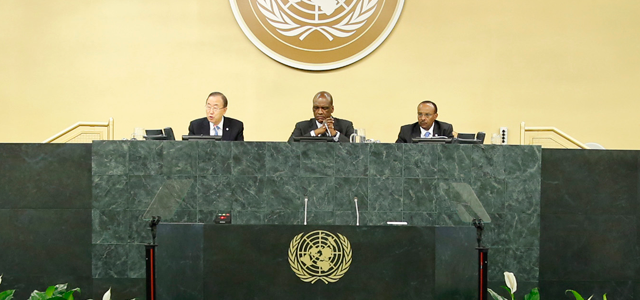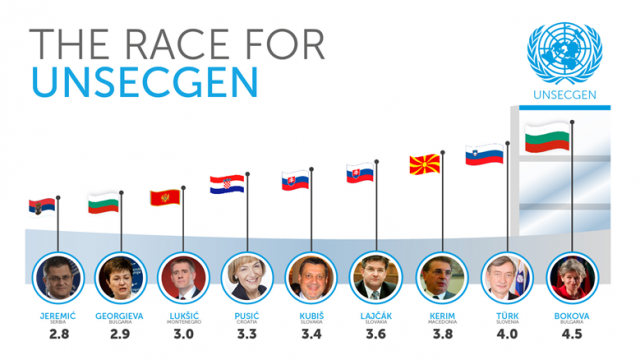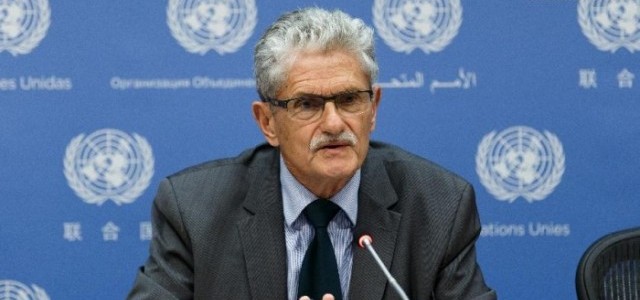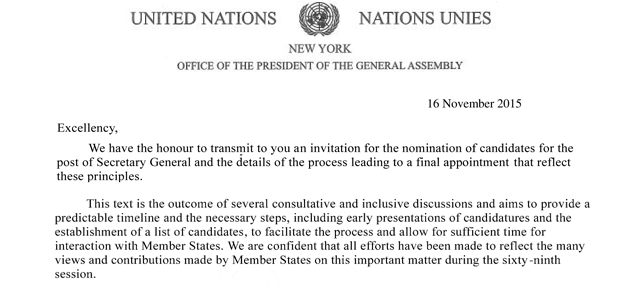The 68th session of the UN General Assembly got into full swing on Tuesday with world leaders’ annual remarks and some initial debate on Syria, surveillance accusations and sustainable development among other political concerns. But the body had already been working on organizational matters for several days, convened the previous week by the incoming session’s President Dr. John William Ashe.
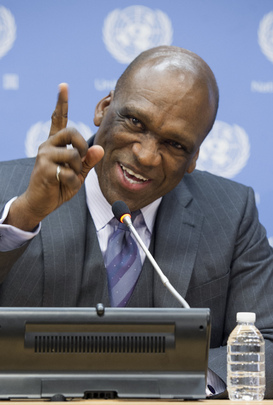
Ashe, from Antigua and Barbuda, will serve as the President of the General Assembly (PGA) for the next year. As many of his predecessors, he has extensive diplomatic experience. He joined the Antiguan delegation at the UN as a scientific counselor in 1989. In 1995, he became Deputy Permanent Representative, and rose to Permanent Representative in 2004.
As Permanent Representative his visibility has been highest on sustainable development and climate change concerns. He served as chair of the 13th session of the Commission on Sustainable Development in 2005, and in 2009, chaired the Ad Hoc Working Group on Further Commitments for Annex I Parties under the Kyoto Protocol (AWG-KP), among other related roles. He concurrently serves as Antigua’s ambassador to the World Trade Organization, and has previously served on the executive Boards of UNDP/UNFPA and at UNICEF. This background will come into play as the General Assembly debates the post-2015 development agenda and further steps to reach a comprehensive climate change accord.
Secretary General Ban Ki-moon has said Ashe will lead one of the most important assemblies to push forward MDG’s and sustainability with confidence. “He shares my passion for sustainable development — and my concern about the problem of climate change,” Ban said. “He demonstrated his commitment by serving on the governing bodies of major U.N. environmental agreements.”
Ashe’s efforts this year could help promote MDG’s sustainability goals in partnership with the United Nations Conference on Sustainable Development, considered one of the largest in the history of the United Nations. In addition, his efforts this year could influence next year’s UN Conference on Small Island Developing States, set forth by a UNGA resolution to address key environmental concerns affecting island nations.
On climate change and other challenges facing the international community, Ashe called on member states to “prove the nay-sayers wrong” in his opening statement to the Assembly last week. He will have to work quickly and leverage the bully pulpit effectively if he is to make inroads on this goal, as he well knows.
“In order to succeed, the General Assembly needs to be equally bold, ambitious and collaborative if we are to rise to the task we are about to undertake and ensure its completion,’ he said, adding ‘failure is not an option. Let us show the world…we can be bold and decisive in our actions.”
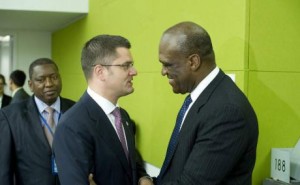
As PGA, he will control the Assembly’s agenda and be able to speak on behalf of all UN member states in commenting on climate change. But he will have only a year – the term of office – to effect change and steer the debate. And even during his time as PGA, he will not have a vote on resolutions that the Assembly considers. A number of his predecessors have been criticized for not achieving what they considered a mandate during their short tenure.
This time next year, Ashe will no longer be PGA. He will have stepped aside and Sam Kuteesa of Uganda will take over. The opportunity for Ashe to steer the Assembly debate as PGA will be over. A year after that, Mogens Lykketoft of Denmark will assume the post and the focus will shift yet again.
The annual rotation of the post between the five geographic regions means a state has only one chance every five years to present a candidate. (No country has ever served in the post more than once.) Given this, states will jockey for support, often announcing their interest to other regional members years ahead. Ashe’s government was endorsed for the post by other Caribbean states in June 2011 and the larger region in December that year, whereas his official election took place only three months ago. The government of Qatar, which held the post in 2011-12, had announced its campaign for the post in 2002 — 9 years and two regional rotations before. The permanent mission of Afghanistan posted last year that it will be a candidate for PGA for the 76th session of the Assembly, in 2021. Governments in Eastern Europe have reported already “assigned” to members the next four rotations for sessions through 2032.
Candidacies being presented so far in advance contributes to the PGA being one of the least merit-based selections in the UN system. This is not to suggest that the current or previous officeholders are unqualified, but rather that their qualifications are a secondary concern to the regional rotation.
The selection of a candidate is left up to the region, and their choice can be practically assured of winning the post when the General Assembly votes each summer. The last time that the Assembly faced a competitive selection was in 1991, when the Asian regional group could not agree on a single candidate and put forward three nominees. (Western European state will occasionally agree on a recommendation nominee, but allow others to stand independently. The Assembly has always elected the regional nominee by acclamation.)
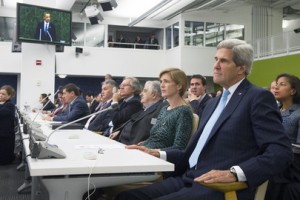
Without bringing the PGA up to date with existing and other emerging practices for global leadership selection, the potential for Mr. Ashe and his successors to effectively “prove the nay-sayers wrong” will be difficult at best. Reforming the selection process and empowering the post’s officeholders can and should be among topics perennially considered in discussions on revitalizing the role of the Assembly.
Unlike many reforms in the UN system that are long overdue, it won’t require consent by the P5 or an amendment to the Charter. Article 21 provides merely that “The General Assembly shall adopt its own rules of procedure. It shall elect its President for each session,” but does not limit the number of terms any individual PGA may serve.
An incumbent PGA could be re-elected in succeeding years. Such a reform would only require political will and the consent of a majority of the Assembly, which could be secured by playing into the regional aspirations that already exist. As early as 2017, the combined 107 votes from Asian and African states would be a sufficient majority to return the previous session’s Asian PGA to another term in exchange for later support in re-electing an African PGA. (The Asian and African groups often support each other in terms of regional rotation.)
Regional rotation is a practice that limits options in other multilaterals and is generally opposed by advocates of transparency and reform. It may however be the tool that allows selection of the PGA to become more competitive by forcing more consideration of the states and candidates seeking the office.
But does the political will exist among General Assembly members — literally, every recognized state in the world — to consider such reform? The “nay-sayers” no doubt have their opinions.

